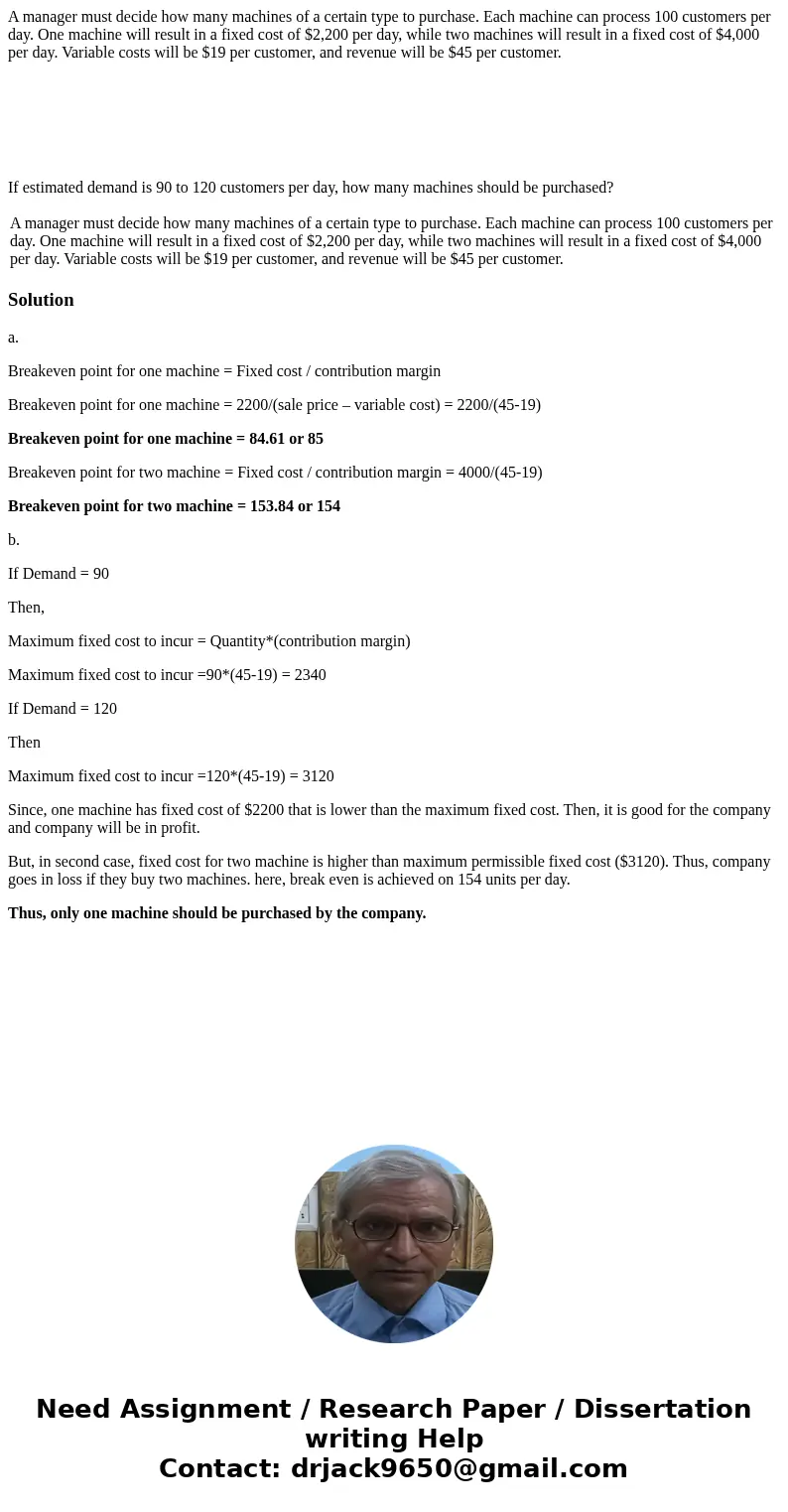A manager must decide how many machines of a certain type to
A manager must decide how many machines of a certain type to purchase. Each machine can process 100 customers per day. One machine will result in a fixed cost of $2,200 per day, while two machines will result in a fixed cost of $4,000 per day. Variable costs will be $19 per customer, and revenue will be $45 per customer.
If estimated demand is 90 to 120 customers per day, how many machines should be purchased?
| A manager must decide how many machines of a certain type to purchase. Each machine can process 100 customers per day. One machine will result in a fixed cost of $2,200 per day, while two machines will result in a fixed cost of $4,000 per day. Variable costs will be $19 per customer, and revenue will be $45 per customer. |
Solution
a.
Breakeven point for one machine = Fixed cost / contribution margin
Breakeven point for one machine = 2200/(sale price – variable cost) = 2200/(45-19)
Breakeven point for one machine = 84.61 or 85
Breakeven point for two machine = Fixed cost / contribution margin = 4000/(45-19)
Breakeven point for two machine = 153.84 or 154
b.
If Demand = 90
Then,
Maximum fixed cost to incur = Quantity*(contribution margin)
Maximum fixed cost to incur =90*(45-19) = 2340
If Demand = 120
Then
Maximum fixed cost to incur =120*(45-19) = 3120
Since, one machine has fixed cost of $2200 that is lower than the maximum fixed cost. Then, it is good for the company and company will be in profit.
But, in second case, fixed cost for two machine is higher than maximum permissible fixed cost ($3120). Thus, company goes in loss if they buy two machines. here, break even is achieved on 154 units per day.
Thus, only one machine should be purchased by the company.

 Homework Sourse
Homework Sourse